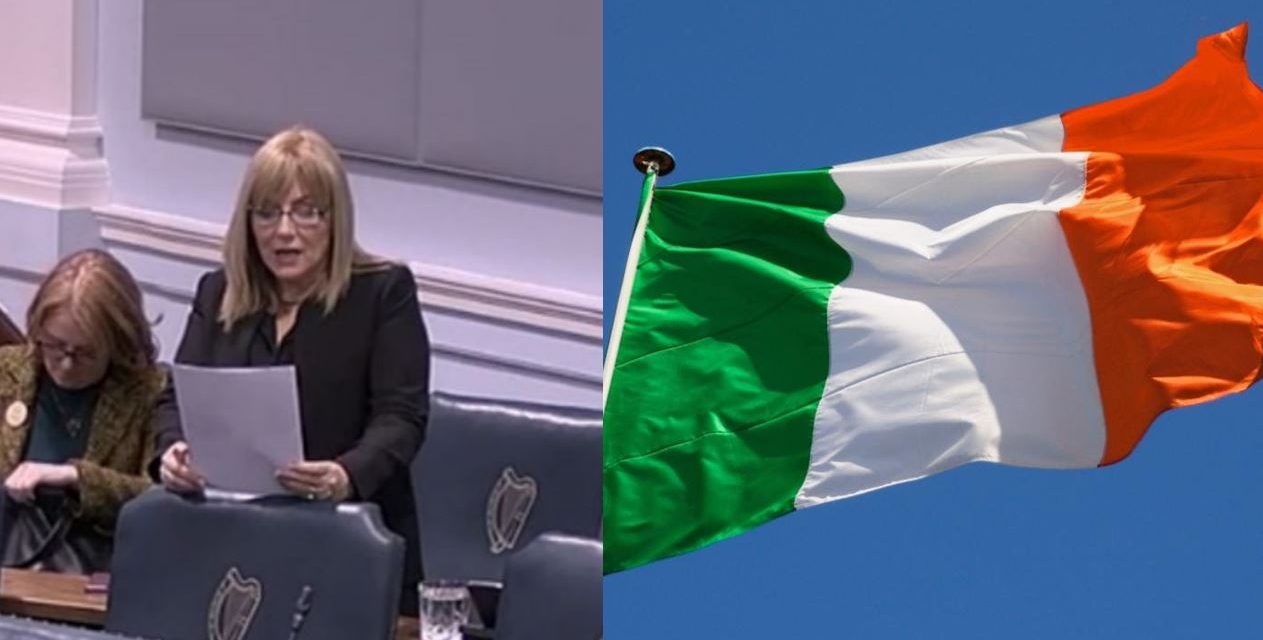The Israeli embassy in Ireland has slammed plans for an expected boycott of Israeli goods warning that it will empower terrorists. The bill, which is counter to EU law, is now expected to pass after Ireland’s second-largest party announced on Wednesday that it will support it, therefore guaranteeing its passage.
Fianna Fáil will join the largest opposition party, Sinn Féin, and others in passing what is officially called the Control of Economic Activity (Occupied Territories) Act of 2018. Although it does not mention Israel, or even “Palestine,” by name, its sponsor, Senator Frances Black (Independent), has openly noted that its wording was carefully formulated so that it would only apply to the Jewish state.
Black, who introduced the bill, has previously signed a letter calling for a boycott of all Israeli products and services.
The proposed legislation declares it an offence “for a person to import or attempt to import settlement goods.”
Likewise, those who “assist another person to import or attempt to import settlement goods” would be committing a crime punishable with up to five years in prison, if the bill were to become law.
Israel’s embassy in Ireland blasted the bill in a statement as an “immoral” one that “will not do any good.” Legislation that promotes any kind of boycott, it continued, “should be rejected as it does nothing to achieve peace but rather empowers the Hamas terrorists as well as those Palestinians who refuse to come to the negotiating table.”
Israel’s embassy in Ireland blasted the bill in a statement as an “immoral” one that “will not do any good.” Legislation that promotes any kind of boycott, it continued, “should be rejected as it does nothing to achieve peace but rather empowers the Hamas terrorists as well as those Palestinians who refuse to come to the negotiating table.”
In addition, the embassy noted, “Closing doors will not in any way facilitate Ireland’s role and influence.”
An interesting point about the proposed legislation is that it runs counter to the law of the European Union (of which Ireland is a member), which states that all EU countries must have a common trade policy. In explaining why parliament should go ahead with it anyway, Black told Ireland’s TheJournal.ie, “I feel if we wait for the EU to take the lead, we could be waiting forever.”
The legislation could also result in some unintended economic consequences for Ireland, more significant than the loss of trade with Israel, which was Ireland’s 11th-largest export partner in 2016, with $1.63 billion, according to JNS.
This is because the bill criminalizing trade with companies in territories Israel liberated in 1967 could put American businesses with Irish subsidiaries (and Irish companies with subsidiaries in the USA) in a bind. They would either be contravening Irish law or violating various state laws as well as the U.S. Export Administration Regulations, which requires American firms to refuse to participate in foreign boycotts that the US does not sanction. Companies that could be affected include, for example, huge multi-nationals like Apple, Google, Facebook and Microsoft, whose trade numbers collectively far outweigh Israel’s.
Source: World Israel News with edits










